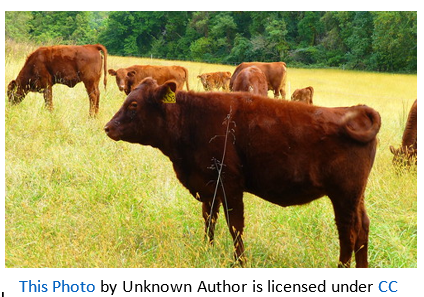Is Grass Fed Beef Better for You?
You may have you heard about grass fed beef but may not know what this term means and if there is a difference between grass fed beef and grain fed beef. Or you may have never even thought about the fact that today’s cows are eating differently than the cows of yesterday.
When you go to the grocery store you may not be aware that most beef that is available to purchase is grain fed. This means the cows ate corn and soy and other grains. The cows were confined in feedlots that violated their freedom causing fear and distress. In these feedlots cows eat whatever is the cheapest source of energy to fatten them up (an all-grain diet), but this diet is not what they should be fed. Cows are ruminants like sheep, goats, and deer and have four stomachs. They mostly eat grass and turn it into protein. They digest grass and any grains leftover from harvesting and extract the nutrients. Cows that eat in this way will produce grass fed beef. Cows do have the ability to digest grains, but the stomach must produce more acid to break down the grains and retrieve the few nutrients remaining. The cow’s digestion needs to switch to a separate way of digesting food. Cows fed this way will produce grain fed beef.
So, by now you may be asking what is the difference between the two? Grass fed beef is higher in omega three fatty acids whereas grain fed beef is higher in omega six fatty acids. The omega six to omega three ratio in grain fed beef is 4:1. This initially may not seem like a problem but then there is little room to consume other omega six containing foods such as bread, rice, and oatmeal and our diets become extremely high in omega six fatty acids which can lead to health problems. Grass fed beef is higher in conjugated linoleic acid (CLA), a precursor for vitamin A and E, and contains cancer fighting antioxidants. CLA is a polyunsaturated fatty acid we must obtain from our diet and may help fight cancer, discourage weight gain, and build muscle and is in high-quality grass-fed beef and butter and other grass-fed animals such as bison. Grass fed beef is more likely to be free of hormones and antibiotics, may help improve blood sugar since CLA has shown to improve insulin sensitivity, has less overall fat and unhealthy fat (lower fat content causes grass fed meat to cook faster), and lower levels of dietary cholesterol. Research has shown that when cows eat an herbivore diet this may protect meat from protein oxidation and lipid peroxidation which studies have linked to inflammation and heart disease. A 2015 study in Consumer Reports demonstrated that choosing to eat grass fed beef over conventional meat decreased the risk of food poisoning which resulted in fewer antibiotic resistant bacteria. Finally, grass-fed beef may lower the carbon footprint and help the environment rather than hurt it.
Studies have shown that reducing the amount of red meat we eat can have positive effects on our health, but the studies do not differentiate between which type of meat people are eating. So, what should you do? It is best to limit the amount of red meat in your diet and when you do eat it, choose grass-fed meat over grain fed meat. We at Gut Instinct can help you navigate the grocery store and identify what to look for on the label ensuring you are purchasing grass-fed meat and provide you with delicious recipes.
References
1. https://draxe.com/nutrition/grass-fed-beef-nutrition/
2. Davis H, Magistrali A, Butler G, Stergiadis S. Nutritional benefits from fatty acids in organic and grass-fed beef. Foods. 2022;11(5):646. doi:10.3390/foods11050646
3. Provenza FD, Kronberg SL, Gregorini P. Is grassfed meat and dairy better for human and environmental health? Frontiers in Nutrition. 2019;6. doi:10.3389/fnut.2019.00026



No comments:
Post a Comment